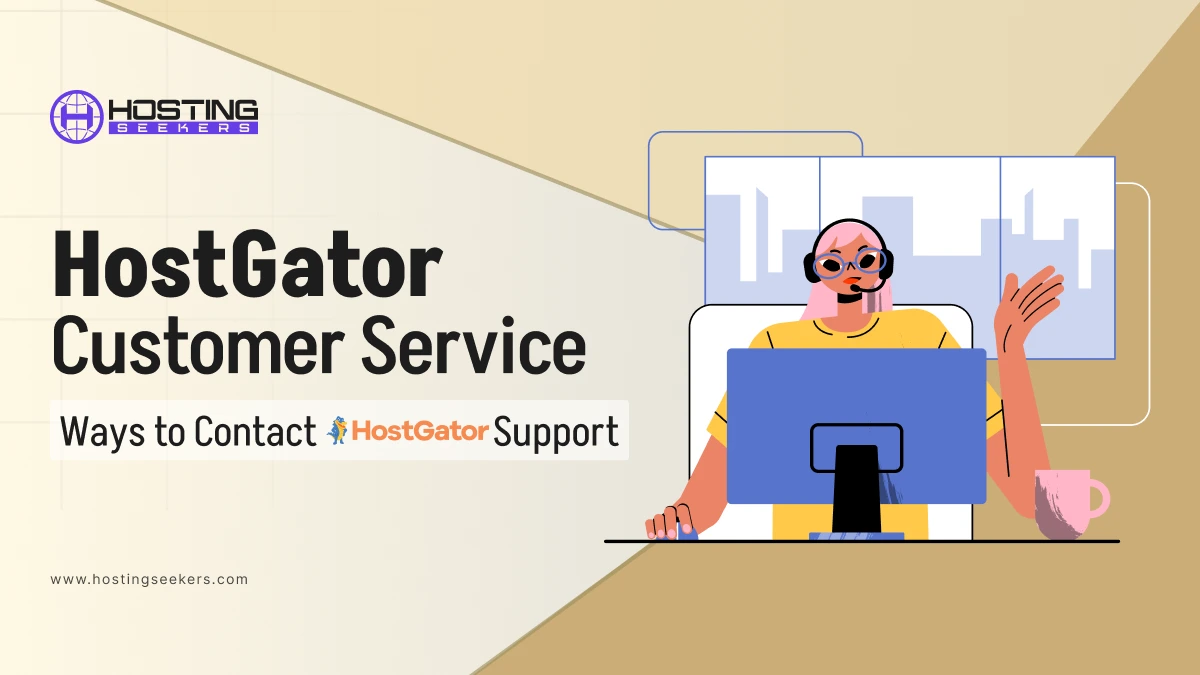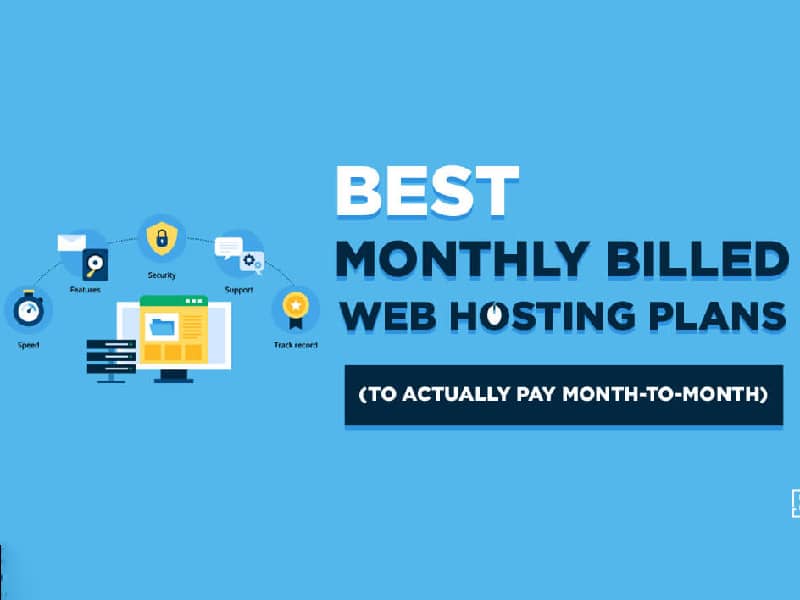HostGator vs. Bluehost: Which EIG Brand is Better?
Two names that consistently top the list for beginners are HostGator and Bluehost. They promise affordability, user-friendly interfaces, and all the tools you need to get online quickly. But there's a catch: they are both flagship brands of the same parent company, Newfold Digital (formerly Endurance International Group or EIG). This shared ownership often leads to a critical question for any savvy website owner: Are they really different, or is it just a marketing illusion? The answer is a bit of both.
While they share some underlying infrastructure and business strategies, HostGator and Bluehost have evolved to target slightly different user needs. Choosing the right one isn't just about picking the cheaper option; it's about aligning the host's strengths with your long-term goals. In this in-depth comparison, we'll dissect their performance, pricing, features, and support to help you find the best hosting for your small business or personal project.
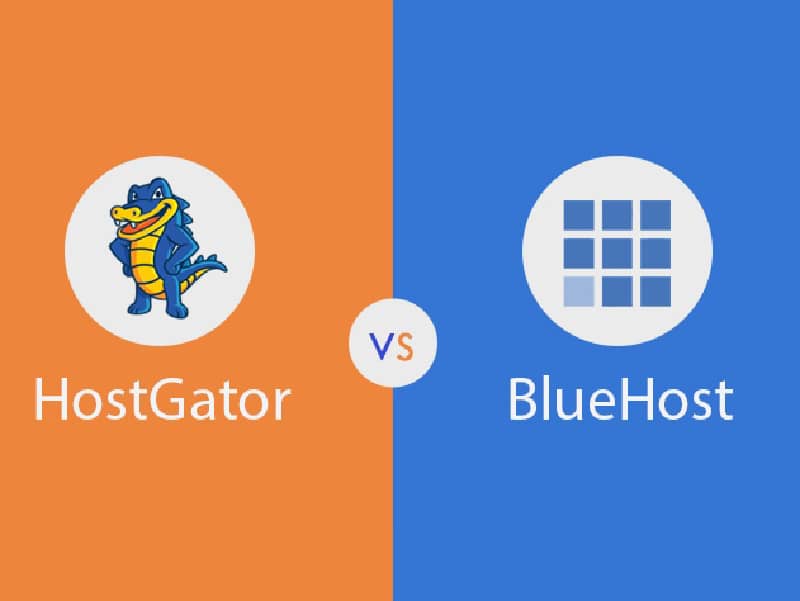
The EIG (Newfold Digital) Connection: What It Means for You
Before we dive into the head-to-head battle, it's important to understand the context of their parent company. EIG (now Newfold Digital) is a tech giant that owns dozens of hosting brands, including iPage, Domain.com, and many others. This business model involves acquiring popular hosts and consolidating them under a single operational umbrella.
What this typically means for EIG brands:
- Shared Infrastructure: Often, brands use similar data centers and server technology, which can lead to comparable performance levels.
- Aggressive Pricing: They are known for extremely low introductory prices to attract new customers, with significantly higher renewal rates.
- Centralized Support: Customer support teams may be shared across brands, which can sometimes lead to inconsistent service quality.
- Focus on Upsells: The business model heavily relies on upselling additional services like backups, security, and SEO tools during and after checkout.
Knowing this helps set realistic expectations. While both HostGator and Bluehost are powerful entry-level options, they operate within this specific corporate framework. Now, let's see how they stack up against each other.
BlueHost
HostGator vs. Bluehost
We'll compare these two hosting giants across the five most critical categories for any website owner: Performance, Pricing, Ease of Use, Features, and Support.
HostGator
1. Performance and Site Speed
For any online business, site speed is not a luxury; it's a necessity. Slow loading times can kill your conversion rates and tank your SEO rankings. While both providers offer standard performance for shared hosting, there are nuances.
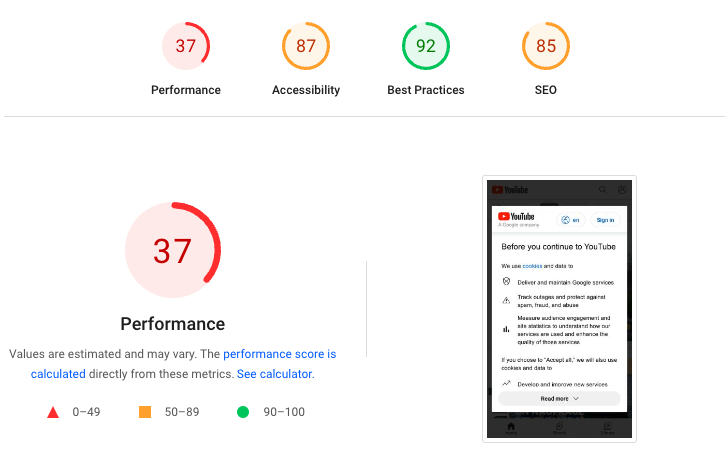
HostGator: HostGator generally provides reliable uptime, often meeting its 99.9% uptime guarantee. Their server response times are respectable for the price point. However, on their cheapest plans (Hatchling and Baby), resources are tightly shared, and you might notice slowdowns if your site or a neighboring site on the server experiences a traffic spike. They use a combination of SSD storage and caching to maintain decent speeds.
Bluehost: Bluehost has invested heavily in its infrastructure, particularly for WordPress sites. They also offer SSD storage across all plans, which is a significant factor for fast website hosting. In many independent tests, Bluehost often shows slightly better server response times, especially on their optimized WordPress plans (Choice Plus and Pro). Their free CDN (Content Delivery Network) integration with Cloudflare is seamless and helps improve global loading times right out of the box.
Winner: Bluehost (by a slight margin). While both are adequate for new websites, Bluehost's focus on performance, especially for WordPress, and its easy CDN integration give it a small but meaningful edge in the race for better site speed.
2. Pricing, Plans, and Overall Value
This is where most beginners focus, and both brands are famous for their affordable hosting. But it's crucial to look beyond the tempting introductory offers.

HostGator:
- Introductory Pricing: Extremely cheap, often starting around $2.75/month for a 36-month term.
- Plans: The 'Hatchling' plan allows one website, while the 'Baby' plan offers unlimited websites, making it a popular choice.
- Renewal Rates: This is where the cost jumps significantly. A plan that starts at $2.75/month can renew at $11.99/month or more.
- What's Included: Free SSL certificate, unmetered bandwidth, and a free domain for the first year.
Bluehost:
- Introductory Pricing: Also very competitive, typically starting around $2.95/month for a 12 or 36-month term.
- Plans: Their 'Basic' plan is for one site, while the 'Choice Plus' plan is their most recommended, offering unlimited websites, free domain privacy, and free automated backups for the first year.
- Renewal Rates: Similar to HostGator, renewal rates are much higher than the initial price. The 'Choice Plus' plan can renew at over $18.99/month.
- What's Included: Free SSL, free domain for the first year, and a free CDN. The 'Choice Plus' plan's inclusion of domain privacy and backups (for one year) adds significant value.
Winner: Tie. HostGator is often slightly cheaper on the initial invoice for its most basic plan. However, Bluehost's 'Choice Plus' plan provides more value upfront with the inclusion of domain privacy and backups, features you'd have to pay extra for with HostGator. Your choice depends on whether you prioritize the absolute lowest entry cost (HostGator) or more included features for a slightly higher price (Bluehost).
3. Ease of Use and User Interface
For beginners, a confusing dashboard can be a major roadblock. Both hosts use the industry-standard cPanel but wrap it in their own custom user interface.
HostGator: HostGator provides a clean, straightforward customer portal. From the main dashboard, you can easily access your cPanel, billing information, and support. While functional, it can feel a bit dated. The path to cPanel is direct, which is great for users who are familiar with it, but it offers less hand-holding for absolute beginners.
Bluehost: This is one of Bluehost's strongest areas. They have developed a custom dashboard that is modern, intuitive, and designed to guide new users. It integrates key cPanel functions directly into the main interface and provides a step-by-step checklist for setting up a new website, especially for WordPress. This guided onboarding process is incredibly helpful for anyone who has never built a site before. You can still access the full cPanel, but many common tasks can be completed without ever leaving the main dashboard.
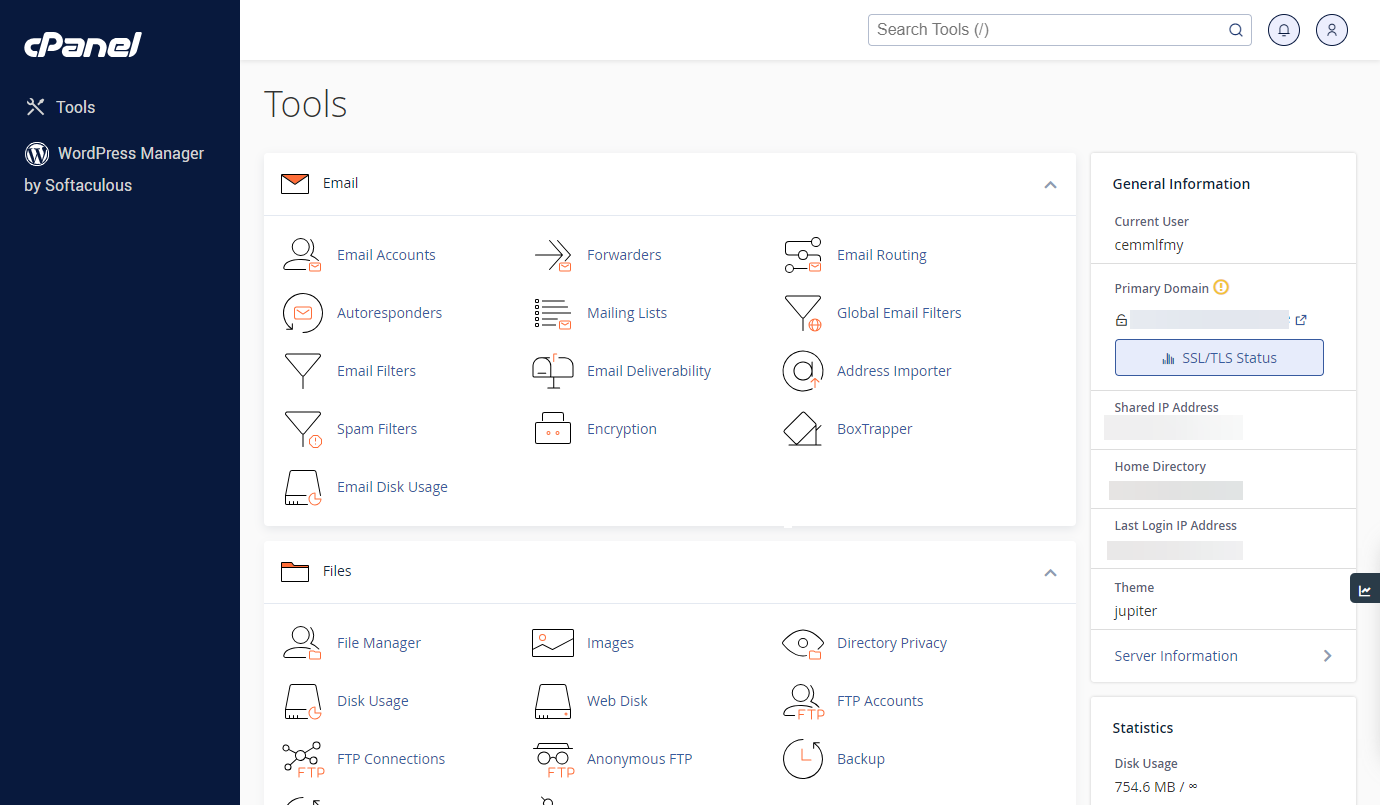
Winner: Bluehost. Its modern, user-centric dashboard and guided setup process make it the clear winner for beginners and those who value a polished user experience.
4. Key Features: What's in the Box?
Beyond storage and bandwidth, the included features can save you time and money.
| Feature | HostGator | Bluehost |
|---|---|---|
| Control Panel | Standard cPanel | Custom Dashboard + cPanel |
| Free Domain | Yes (1 year) | Yes (1 year) |
| Free SSL | Yes (Let's Encrypt) | Yes (Let's Encrypt) |
| Free CDN | Yes (via cPanel) | Yes (Cloudflare, 1-click setup) |
| Website Builder | Gator Website Builder (Separate Product) | Bluehost Website Builder (Included) |
| Backups | Limited; Paid Add-on (CodeGuard) Recommended | Free on Choice Plus & Pro (1st year) |
| Domain Privacy | Paid Add-on | Free on Choice Plus & Pro |
Winner: Bluehost. The inclusion of a free website builder and, more importantly, free domain privacy and backups on its higher-tier shared plans, gives Bluehost a decisive edge in value-added features.
5. Customer : Who Answers the Call?
Customer support is a notorious weak point for many EIG brands. Both offer 24/7 support via live chat and phone, but the quality can be a mixed bag.
HostGator: HostGator's support is generally considered decent for basic issues. Their knowledge base is extensive, and you can usually get a quick response on live chat for simple questions. However, for more complex technical problems, you may experience longer wait times and need to be escalated to a higher-tier support agent.
Bluehost: Bluehost also has a massive support operation. Their first line of support is heavily geared towards solving common WordPress issues, which is a plus for that user base. However, like HostGator, they can be quick to point you to a knowledge base article or an upsell for a premium service. User reviews for both are polarized; some have great experiences, while others are frustrated.
Winner: Tie. Neither company is renowned for award-winning support, but both provide functional, 24/7 access for solving common problems. Your experience will likely depend on the specific issue and the agent you connect with.
Which Host is Right for You?
After comparing them side-by-side, it's clear that while they come from the same family, they are not identical twins. The choice comes down to your specific priorities.
Choose Bluehost if...
- You are a beginner building your first WordPress site. Bluehost's official WordPress recommendation isn't just a badge; their entire platform, from the dashboard to support, is optimized for it.
- You value a modern, intuitive user experience. The custom dashboard and guided setup are industry-leading for ease of use.
- You want more value-added features included. The free domain privacy and backups on the Choice Plus plan are significant perks that can save you money and hassle.
Choose HostGator if...
- Your absolute top priority is the lowest possible initial cost. HostGator's Hatchling plan is often one of the cheapest ways to get a single website online.
- You plan to host multiple, simple, non-WordPress sites. The 'Baby' plan is a very cost-effective solution for hosting unlimited domains without the WordPress-centric focus of Bluehost.
- You are an experienced user who prefers a traditional, no-frills cPanel experience. If you don't need the hand-holding of a custom dashboard, HostGator's direct approach might appeal to you.
Final Recommendation
For the vast majority of new users, especially small business owners and bloggers who plan to use WordPress, Bluehost is the better choice. The superior user interface, better performance optimization for WordPress, and more valuable included features on their popular plans provide a stronger foundation for building and growing a successful website.
HostGator remains a solid, affordable hosting option, but it's outmatched by Bluehost in the areas that matter most to beginners.





